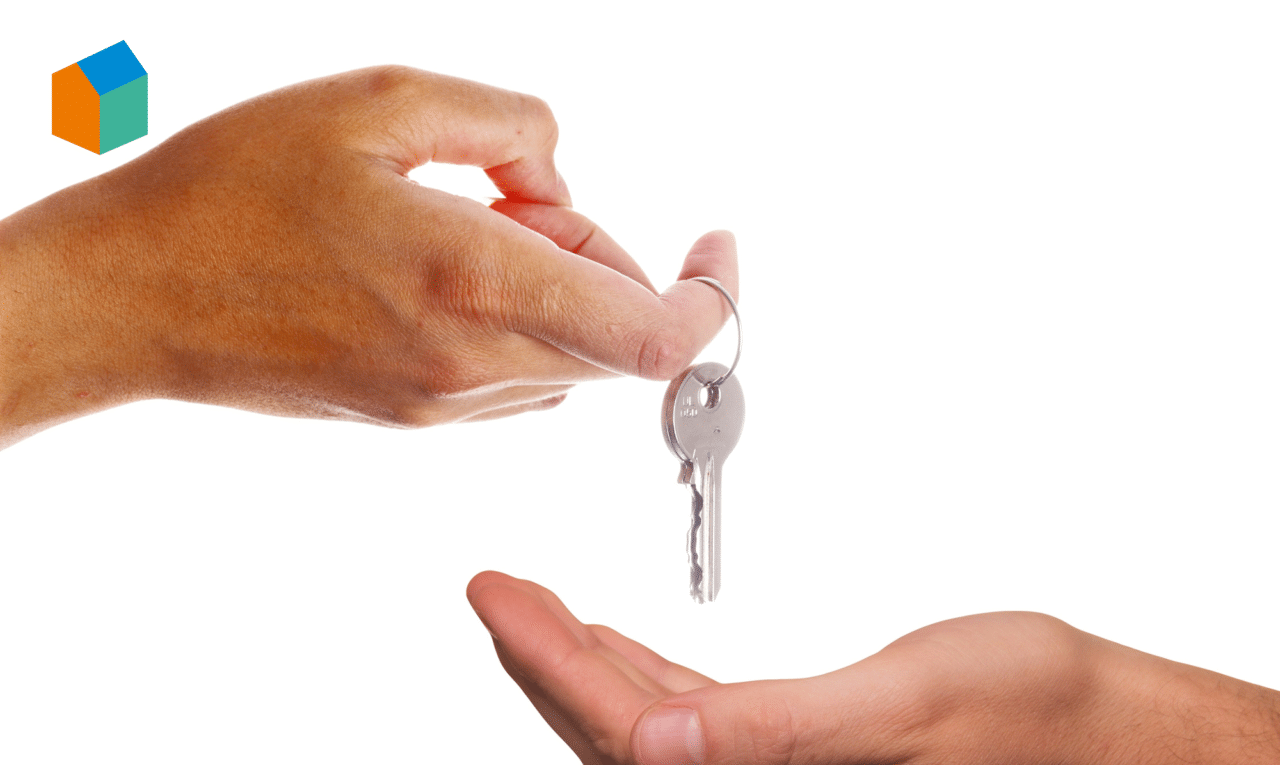Like any contract, a lease, or more precisely a rental contract, defines a series of rights and obligations of which the contracting parties, the landlord and the conductor, are required to enjoy or abide by. Whether you own a leased home or are the user of the property, you may not be totally aware of the rights you can claim and the duties you are required to fulfill.
Throughout the article we will refer to the two parties involved often using the relevant technical term.
To wit:
- Landlord: the owner of the property covered by the lease;
- Conductor: the tenant, the user of the property who pays the landlord the agreed sum to enjoy the property.
As a general principle, it would be helpful if a cooperative relationship is established between landlord and tenant from the very beginning; both parties would live more peacefully by achieving their goals respectively. But human affairs are unpredictable, we know, all the more so when there are economic-patrimonial interests where precisely it cannot be ruled out that tensions or clashes may arise over time between the two parties. Therefore, it is good to know the obligations to which the lease binds them as well as the rights.
Incidentally, many landlord-tenant disputes arise precisely from an approximate knowledge of this matter.
Except for any agreements made in writing by landlord and tenant, charges such as fees are enshrined in law. We refer in particular to, among others Articles 1575, 1581 and 1587 of the Civil Code.
It is good to make an important premise: whatever recourse the landlord or tenant has to claim, it will be payable only if the contract is duly registered with the Internal Revenue Service. An unregistered de facto lease is void.
What are the landlord's charges and rights ?
Let's start with burdens.
The landlord is required to Deliver the property in good condition so that the tenant can enjoy it for the purposes stipulated in the lease. In addition, the landlord is also required to Maintain the property itself in the necessary condition by taking action for any repairs.
In this case, reference is made to onerous and/or structural interventions aimed at repairing damage or malfunctions not attributable to improper use and behavior by the tenant and not those related to ordinary maintenance. Therefore, those damages derived from normal wear and tear over time are also included in the group. On the other hand, as already indicated, those ordinary and minor maintenance works that instead remain the responsibility of the tenant are not included. To give a few examples, the landlord is entitled to work on re-roofing or those related to the proper functioning of the heating system; repairing a leaky faucet, broken glass or a doorknob that needs to be replaced, on the other hand, is the responsibility of the tenant.
The landlord is obliged in some cases even To take action in the event that work needs to be done on an appliance owned by him or her and which falls within the goods enjoyed by the tenant. For example, if the apartment is also equipped with a washing machine and it has malfunctions that involve a complex and costly repair the landlord is obliged to replace it, different as we will see later, however, is the case where the repairs of this equipment are related to minor maintenance.
The landlord is obligated to make the tenant aware of any hidden defects, that is, those defects not evident at the time of the visit by the person interested in renting the property. If the landlord fails to point out any hidden defects, the tenant is within his or her rights to seek termination of the contract or compensation for any damages caused by a concealed defect. A hidden defect, thus not evident at the time the tenant viewed the property, may be, for example, a roof that is unsafe or where seepage persists.
Another responsibility borne by the landlord is that of Arrange for registration of the lease agreement with the Internal Revenue Service. The related costs, if any, are shared with the tenant upon submission of the accounts, but the obligation to provide is precisely on the landlord.
Finally, to the return of the property, the landlord shall return to the tenant any amount received as security deposit At the time of entering into the lease agreement.
We now come to the landlord's rights.
The landlord shall be entitled to receive payment of the rent in the form and manner agreed upon at the time of entering into the contract. The occurrence of non-payment or late payment puts the landlord in a position to proceed to evict the defaulting tenant, terminate the lease, and claim damages, since although evicted, the tenant remains under the obligation to pay any sums that he or she may still owe to the landlord.
At the end of the intervening relationship and thus when the tenant returns the keys of the property to the landlord, the landlord will Has the right to regain possession of the property itself in the condition in which he had delivered it, subject to deterioration due to use and time.
If the landlord had delivered the apartment stained and in a good state of cleanliness, he has the right to retake possession of it clean and stained.
The landlord remains exempt from all expenses that are borne by the tenant, such as condominium expenses earmarked for normal maintenance and cleaning of shared spaces: for example, stair and garden cleaning or elevator maintenance if there is one in the condominium.
What are the charges and rights of the tenant ?
Again we start with the charges.
The first duty to which the tenant is bound, is to Pay in favor of the landlord the agreed rental payments on a regular basis that is, within the time stipulated in the contract. Any defaults by the landlord do not place the tenant in the right to suspend payments or reduce their amounts. He will possibly have the right to assert his claims in court by obtaining repayment where it is ruled by the Judge.
The tenant has an obligation to take diligent care of the property. And at the end of the lease he is obliged to return the property to the landlord in the same condition in which he received it. As specified above, we refer to the condition net of natural deterioration due to the property's own use.
It is good in this regard that in the lease agreement or in a handover report attached are a description of the condition of the property and any assets in the property such as furniture or appliances.
The tenant must use the property according to the purposes stipulated in the contract.
Expenses to be borne by the tenant.
In addition to the rent the tenant must bear the expenses arising from minor and routine maintenance repairs. Also charged to him are the Expenses related to cleaning services and ordinary maintenance of the condominium Of which the property is possibly part.
He is required to pay to the landlord, upon demonstration of supporting documents, Half of the costs incurred in registering the contract with the Internal Revenue Service Where they are provided for in the contract.
If the tenant performs or causes to be performed any improvements to the property that have not been authorized by the landlord, the tenant may not claim reimbursement from the landlord for the costs incurred.
Tenant's rights.
The conductor, clearly, Has the right to enjoy the property under the lease agreement In the form and manner prescribed in the contract itself. The tenant has the right to have the proper functioning of the property restored by intervention of the landlord in case of damages or malfunctions that diminish or prevent its enjoyment that do not result from the tenant's own faults and/or omissions.
The tenant's right to enjoyment of the property, as described above, places the landlord under an obligation to intervene on the tenant's behalf if third parties render the property unsuitable for the tenant's uses.
We have made it clear that the tenant, even in the case of defaults on the part of the landlord, cannot arbitrarily decide to terminate the lease or reduce the rent or even suspend its payments. However, these faculties fall within his rights if the problems, even if arising from defects known and accepted by the tenant, endanger the safety of the tenant himself or his family members or in any case oblige him to move out.
Any repair or other maintenance work to be undertaken by the landlord during the period of the lease generally must be tolerated by the tenant. However, if the time period of the works exceeds 20 days or the sixth part of the total time period stipulated in the lease, the tenant shall be entitled to a reduction of the rent to the extent that the enjoyment of the property is diminished. In any case if the work itself prevents the tenant from enjoying the property altogether, he is entitled to termination of the lease.
To conclude
We have done a fairly thorough disanalyzation of what are the Rights and burdens of landlords and tenants derived from entering into a lease agreement by sounding out the main steps provided by the legislation.
As mentioned, the parties may agree to different arrangements as long as they are put in writing in a properly registered contract clearly respecting the rationale of the rules in this matter.
Case histories can multiply. If you need more details, have questions or need clarification, please fill out the form below.
One of our counselors will get back to you as soon as possible.

